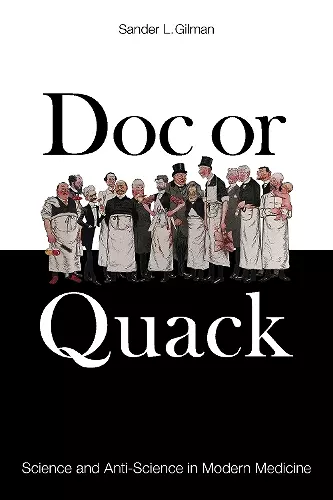Doc or Quack
Science and Anti-Science in Modern Medicine
Format:Hardback
Publisher:Reaktion Books
Published:1st Apr '25
Should be back in stock very soon

Reaching from the beginnings of scientific medicine in the nineteenth century through to the present, Sander L. Gilman examines the ever-shifting boundary between scientific medicine and quackery, asking if such a fixed boundary can realistically exist within mainstream medical practice. Through detailed case studies – of stomach ulcers and eye disease – as well as the clinical use and abuse of specific therapies, such as acupuncture, Doc or Quack reveals the influence of pharmaceutical companies in determining the nature of medical practice, the pros and cons of increasing specialization, the question of why ‘bad’ science can cure, and the murky issue of ‘race’ and ‘gender’ in scientific medicine. This readable account covers medical practice from the Enlightenment to the present, offering a realistic view of health politics in the usa, Germany and the uk. It’s an essential read for anyone interested in the history and future of scientific medicine in the age of Charles iii and Trump ii.
ISBN: 9781836390152
Dimensions: unknown
Weight: unknown
360 pages